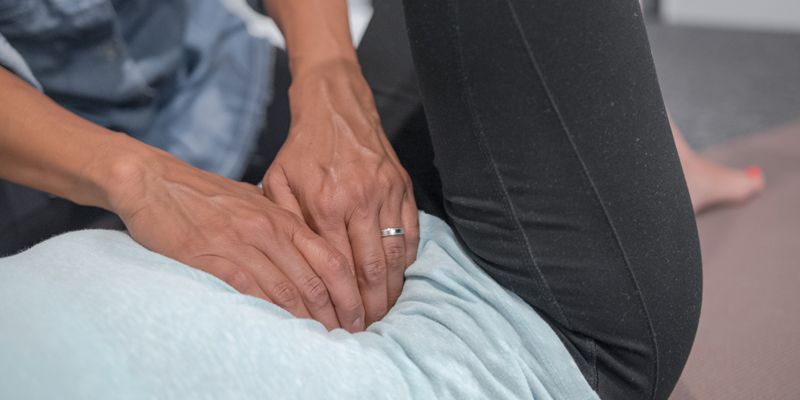
I think even if you have never had a baby, you can still appreciate the changes the body
has to go through during pregnancy, delivery, and even into the post-partum period. One
of the changes that can occur is pelvic organ prolapse (POP). POP is when one of your
pelvic organs (such as the bladder, uterus, or rectum) drops or descends down the vaginal
region and feels as if they are falling out. This typically occurs because the muscles,
ligaments, and soft tissue that typically hold these organs up in your pelvis have become
stretched or weakened, the pelvic alignment has changed and the organs aren’t sitting in
the correct position, increased pressures in your abdomen or a combination of all of these.
When the organs lose this support, they fall down from their normal positions and can
cause a host of problems such as urinary incontinence, pelvic pain or pressure, urinary
retention, and difficulty starting urination. There can also be bowel symptoms, such as
difficulty fully evacuating your bowel or constipation-like symptoms. It should be noted,
this doesn’t just happen during pregnancy and childbirth! You can have a POP even if
you never had any pregnancies or deliveries!
How do you stop this from happening?!?
There are multiple things that can be done to prevent POP or to help the pelvic organs sit
in a better position and let the supporting tissues heal to be able to help with holding
those organs up. I would recommend coming to Rebalance PT and speaking to a pelvic
floor physical therapist for more specific treatment options. However, a recently
published research article out of Yale showed an important risk factor for prolapse for
women one year after delivery was their BMI or body mass index. According to the
Centers for Disease Control (CDC), BMI is a person’s weight in kilograms divided by the
square of height in meters (you can find a calculator easily online by searching for “BMI
calculator”) and is an indicator of a person’s body fat. BMI is used often as an indicator
for risk factors for certain diseases. The higher the BMI, the higher the likelihood of
being overweight or obese. This study reported the following:
“We found that an important risk factor for prolapse for women one year after delivery
was their BMI, regardless of their baseline BMI at the first trimester, or how much they
gained during pregnancy,” said Guess. “Specifically, the higher the BMI one year after
delivery, the higher the risk for having pelvic floor laxity and increased odds for early
stage pelvic organ prolapse.”
“Our findings show that even small differences in BMI one year after delivery can lead to
pelvic floor laxity in normal-weight women,” said Guess. “These results shed light on a
potential critical, time-dependent opportunity to modify the risk of developing pelvic
organ prolapse for some women.”
Elayne Geba
In-Person and Online Consultations


